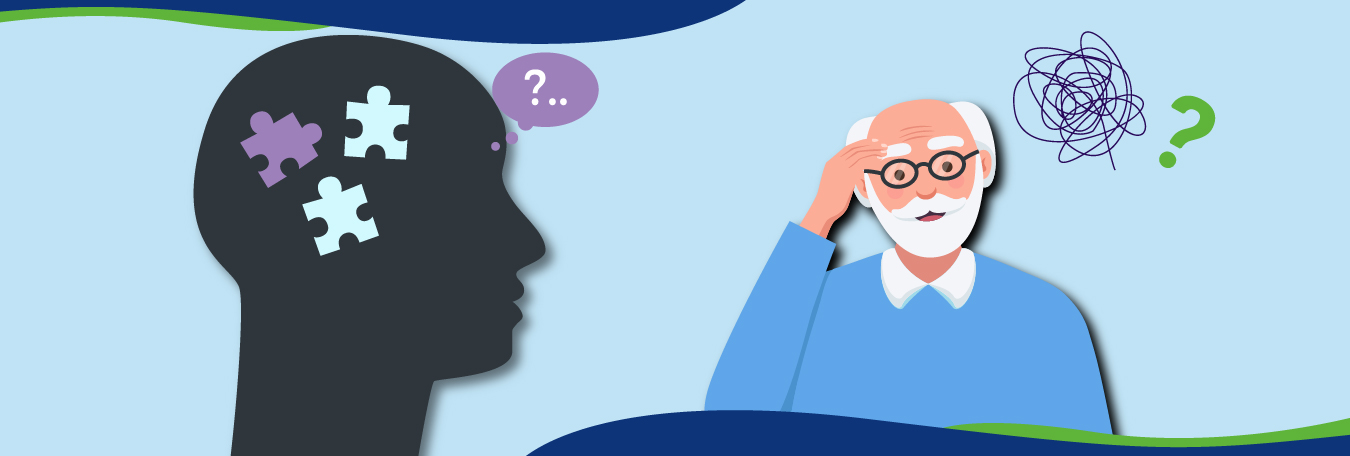Are you facing any cognitive issues? Do you think that you forget things often? If yes then you might have experienced any traumatic event in your life. Any person who is an eyewitness to any disturbing or frightening situation faces difficulty in different life aspects. Moreover, affected persons consider it hard to tackle the undesired life circumstances. Their brain remains filled with numerous intrusive thoughts. Due to their persistent fear, they cannot pay attention to essential details. If you think that you are suffering from such a mental condition then there is a greater possibility that you are suffering from post-traumatic stress disorder. Furthermore, this disorder can adversely affect the social, physical as well as mental well-being.
People with PTSD remain in stress conditions even after the traumatic situation has ended. They feel a reduced connection with reality. Similarly, they prefer isolation instead of interacting with any person or event that reminds them of the traumatic event.
However, if you are the one who is suffering from PTSD and memory loss, then this article is ideal for you. After reading this article, you will get a better understanding of PTSD and memory loss. At Inland Empire Behavioral Group, you can find top-notch mental health experts who can treat PTSD and its associated symptoms. Furthermore, you can also acquire the benefits of our telehealth services if you want to cherish the mental well-being within your periphery.
Symptoms of Post-traumatic stress disorder
After the traumatic incident, individuals experience the following symptoms that can negatively alter their lives.
- Recurrent distressing memories
- Frequent nightmares
- Panic attacks
- Aggression
- Severe physical reactions
- Usual negative thoughts
- Fatigue
- Self-criticizing
- Lack of passion or interest
- Trouble in sleeping
- Difficulty in developing bonds with loved ones
- Suicidal thoughts
- Lack of consistency
- Reduced social engagement
- Hopelessness
- Emotional instability
- Lack of focus or concentration
- Irritability
- Guilt or shame
- Eating disorder symptoms
What are the main sources of traumas?
Various post-traumatic events can be life-threatening and leave a strong negative impact on an individual. However, the most common traumatic events include:
- Personal loss
- Financial loss
- Death of loved ones
- Natural disaster
- Sexual abuse
- Childhood abuse
- Road accident
Any occasion that alters the person’s normal mental state can direct the person toward the traumatic pathways. However, it’s quite normal to exhibit a response towards any traumatic event.
Learn more: Eating Disorder Assessment : Top Screening Tools
What happens in the body with PTSD?
There is a strong association between PTSD and memory loss. The trigger factor of fear or stress can vary. First, the brain receives the signal from an external stressor and sends a message for the activation of sympathetic pathways. The sympathetic system is specifically involved in the activation of fight or flight response. This is a common and rapid response to trauma or any stressful situation. Moreover, the signaling of neurons becomes rapid. In addition, to deal with the ongoing situation, few stress hormones are released which prepares the body. Cortisol is the major stress hormone that causes various negative changes in the body.
Furthermore, most people usually recover after the completion of a stressful event. However, persons with post-traumatic stress disorder have to strive hard to overcome the situation. Even after the trauma is over and multiple days have passed, they still feel frightened and depressed.
Likewise, not every person does not have to respond immediately to the trauma. In most cases, the onset of PTSD symptoms occurs after a long time. Similarly, some people do not feel the presence of symptoms.
Who is more likely to develop PTSD symptoms?
Any person can develop the symptoms of PTSD and memory loss irrespective of age, gender, ethnicity, or any socio-economic factor. Risk can appear anytime and anywhere, This thing is not under control. However, some factors can increase the probability of getting affected by this disorder such as:
- Previous medical history
- Gender
- Reduced social or moral support
- Less social engagement rate
- Pain or injury
- Loss of a loved one
- History of substance abuse
READ MORE: PTSD: Symptoms, Causes, Diagnosis and Treatment
Can you become disabled from PTSD?
If PTSD and memory loss interfere with life activities, then it can be concluded that you can get disability for PTSD. The symptoms of the disorder should meet specific criteria to cause disability which are as follows:
- The affected individual experiences undesired changes in behavior
- Sudden exposure to a threatening situation
- Disturbance in the sleep-wake cycle
- Avoiding external reminders of traumatic scenarios
- Limitation in interaction with social activities
- Less adaptation toward the environment
- Previous medical history of PTSD from two years
- Fail to understand essential life facts
- Elevated sexual arousal
What are the types of memory affected by PTSD?
Any traumatic event can have a serious impact on different types of memory which include:
Short term memory
A large number of studies have answered the question that PTSD causes short-term memory loss. As the name indicates, this memory lasts for a short period. Individuals suffering from post-traumatic stress disorder are unable to remember basic things like appointments, daily life tasks, or official meetings.
Long term memory
The brain collects the information from short-term memory and stores it in the form of long-term memory. Moreover, this memory can be stored for a longer period.
READ MORE: A Complete Guide To The Signs Of PTSD In Teenage Girl
Can PTSD cause memory loss?
Yes. Different studies have reported the fact that post-traumatic stress disorder can affect memory. Most individuals experience cognitive difficulties after the onset of PTSD and memory loss symptoms. Although there are multiple symptoms of this disorder, memory loss is considered more chronic and requires immediate treatment. Initially, affected individuals feel certain obstacles in completing their day-to-day tasks. Moreover, major effects on memory can be found and ultimately result in memory loss. Affected individuals face major adversities in both long-term and short-term memory.
Does PTSD cause memory issues?
There are different ways through which post-traumatic stress disorder results in memory loss.
In the initial stages, affected individuals went through repeated flashbacks and recalled only negative memories. Moreover, their brain is unable to retain positive or healthy memories. In addition, general memory related to common things is also affected. Similarly, working memory is also affected. All these effects are due to some negative alterations in the brain after the traumatic event. Stress factors specifically affect the prefrontal cortex region of the brain. This brain part is responsible for generating and processing memories. After the traumatic incident, the functioning of this brain part gets reduced to a great extent. Affected persons face difficulty in going through the current situation and making effective decisions such as calling for help.
Similarly, post-traumatic stress disorder also affects the amygdala of the brain. After facing any stressful situation, adrenaline is released in the body which then imprints the memory on the amygdala. Most of the time, the functioning of the amygdala gets altered.
Can complex PTSD cause memory loss?
A lot of people always remain curious to know if post-traumatic stress can cause memory loss. Complex post-traumatic stress disorder is a condition in which a person experiences additional symptoms along with the common symptoms of PTSD and memory loss. Moreover, aggression and hostile behavior are the most common additional symptoms of complex post-traumatic stress disorder. Affected individuals get to engage in avoidance behaviors consciously or unconsciously. Their main goal is to eradicate their intrusive thoughts or memories.
Furthermore, complex PTSD symptoms reduce confidence or self-esteem. Every individual should be familiar with how complex PTSD can cause memory loss. In this situation, recalling memories results in the occurrence of strong emotions. Moreover, the brains of affected individuals feel the sensation of detachment from others. Memory loss resulting from complex PTSD symptoms is lethal as a person can face various risks in different life aspects. Memory loss can impair the ability to take safety precautions during risky conditions. They do not follow the instructions of others and unintentionally indulge in harmful pathways.
Disruption of sleep cycles
Under the effects of panic attacks, affected persons are unable to get adequate sleep. Moreover, unexpected nightmares also impose multiple challenges for sleep. Due to lack of sleep, the brain does not develop new memories. In this way, trauma remains fresh and leads to the occurrence of more intrusive thoughts or harsh memories. Furthermore, if the conditions persist for a longer period, then it can result in insomnia. Chronic stages of insomnia can affect memory and result in memory loss.
READ MORE: Everything to Know About PTSD Criteria
What types of memory loss are linked with PTSD?
If you want to know if PTSD causes memory issues then you should be familiar with the all essential facts related to types of memory loss. The most common types of memory loss include:
Verbal declarative memory
The verbal declarative memory is associated with certain facts or events. Moreover, it is a type of long-term memory. It is responsible for the effective processing and recollection of varied events or facts. Moreover, various studies have reported the fact that PTSD and memory loss resulting from childhood abuse or domestic violence can result in the dysfunction of this memory.
Dissociative amnesia
This condition involves short-term memory loss. Affected individuals are unable to remember important information about their lives. Moreover, dissociative amnesia comprises the gaps in memories.
Voluntary recall of traumatic event
In most cases, a person faces difficulty in remembering the details that surround the traumatic events. Moreover, the memories are also present in the form of fragments. If someone asks a question from them regarding their traumatic event, they become confused and can’t explain what happened.
Learn more:Is PTSD a disability
Treatment of PTSD and memory loss
If you are struggling with memory loss resulting from post-traumatic stress disorder, then first you should treat the main stem cause and then the resulting symptoms. Moreover, there are various conventional PTSD treatments which include medication management and psychotherapy.
Medications
As PTSD and memory loss result in anxiety or depression, different antidepressants are recommended. Moreover, other effective medications include mood stabilizers and selective serotonin reuptake inhibitors.
Cognitive behavior therapy
This psychotherapy is renowned in terms of PTSD treatment. Mental health therapists specifically focus on the association between emotions, thoughts, and behavior. Moreover, they guide the patients on how to modify their behavior in a significant manner. Regular therapy sessions of cognitive behavior therapy can lessen PTSD and memory loss symptoms.
Eye movement desensitization and reprocessing
This therapy is specifically involved in the activation of various mechanisms that trigger memory. All the memories are processed during this therapy. Brains get adapted to truly identify the actual information. Furthermore, memory reconsolidation also occurs.
Other significant strategies to manage memory loss
If you are not satisfied with the use of medications and therapy, then you can also manage the PTSD and memory loss symptoms by simply following a healthy and balanced routine.
Workout Routine
Making a schedule of daily exercises as regular workouts can improve thinking, learning, and memory. During the workout session, the blood supply to the brain is increased. This results in improved brain functioning. Furthermore, experts recommend 15 to 20 minutes of exercise daily for enhanced brain function.
Sufficient sleep
Adequate sleep is highly effective for improved brain function. Make a proper plan for sleep-wake patterns and strictly instruct your mind to follow that routine. Daily six to seven hours of sleep is sufficient for brain health. Moreover, try to sleep in a dark environment so the release of melatonin is appropriate and ultimately you cherish your life.
Nutrition
Eat a healthy diet if you want to cherish your life. Try to add all nutritious food products to your diet daily. However, if you do not have sufficient knowledge, you can also take the assistance of nutrition experts regarding the absolute quantity of nutrients. Always remember that there is a strong link between diet and cognitive abilities. Eat fresh fruits and vegetables. Moreover, also add the omega 3 fatty acids to your food plan. Similarly, restrict the intake of alcohol and beverages.
READ MORE: PTSD vs cPTSD: Are They Similar or Different?
Concluding remarks
Post-traumatic stress disorder is a complex mental illness that develops in those people who have experienced any traumatic event. The onset of post-traumatic stress disorder symptoms can occur at any time irrespective of age and gender. In addition, personal loss, financial loss, death of a loved one can be the source of a person’s trauma. Moreover, post-traumatic stress disorder can result in memory loss in severe cases. But you do not need to take stress as our mental health services can empower your mental well-being. At Inland Empire Behavioral Group, you can find phenomenal mental health services that can treat PTSD and memory loss. Furthermore, you can also avail the significant opportunity of telehealth services. So what are you waiting for? Reach out to our experts and enjoy sound mental health.




